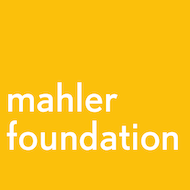- Chronology: Year 1908
- Location: New York Metropolitan Opera (MET)
- Program: Don Giovanni
- Conductor: Gustav Mahler (1860-1911)
- Orchestra: New York Metropolitan Opera (MET) Orchestra
- Singers: Antonio Scotti (1866-1936), Emma Eames (1865-1952), Alessandro Bonci (1870-1940), Johanna Gadski (1872-1932), Feodor Chaliapin (1873-1938), Marcella Sembrich (1858-1935), Eugene Dufriche (1848), Robert Blass (1867-1930)
- Stage design: Kautsky Brothers
- Notes: New York Metropolitan Opera (MET) repertoire Gustav Mahler, met069
Review from The New York Times:
Mozart’s “Don Giovanni” was given for the first time this season at the Metropolitan Opera House last evening. It was under the direction of Gustav Mahler, and it was the second production that he has had charge of since he came to New York. The cast contained familiar figures. Mme. Sembrich was the Zerlina, one of the most perfect and wholly charming embodiments of this part that it is the fortune of the present generation of operagoers to enjoy, and given last evening with delightful beauty of voice and style and the fullness of grace and humor that irradiates all her assumption of comic parts.
Mr. Scotti as Don Giovanni has long been familiar and long admired at the Metropolitan, superbly voicing the music that falls to his share, and presenting a wholly characteristic portrait of the dissolute nobleman. There was Mme. Gadski as Donna Elvira. She was not in her best voice, as it seemed, but here singing had much nobility and beauty of tone.
Mr. Bonci, for the first time at the Metropolitan, was seen as Don Ottavio; but he compelled admiration at the rival house last season for his assumption of this part, which he sang there with a perfection of vocalism and a purity of style that had not been heard from the mouth of Don Ottavio for a considerable time in New York, and they were gladly welcomed as important feature of this performance.
Mr. Dufriche was the Masetto, a more important undertaking than any that has been entrusted to him in recent years here, and, as the event proved, one in which he could not reach the level of most of his companions in the cast, for neither in voice nor in action was he equal to the requirements of the character. Mr. Blass was well suited to the demands made upon him as the Commendatore.
New to the public was Mme. Eames’s impersonation as Donna Anna and Mr. Chaliapine’s as Leporello. Mme. Eames was apparently somewhat ill at ease in this difficult part. She did not show all the tragic power by which the character is to be made truly impressive, and she sang her great aria, “Or sai, che l’onore,” with some effort and with lapses from the true pitch. Yet there can be no doubt but that she will “find herself” in this character when she attains a greater familiarity with it and possesses herself more fully of its requirements.
Mr. Chaliapine’s Leporello was awaited with some trepidation by those who have seen and heard what he has done in other operas in which he has given his ideas of operatic comedy full play. He showed more restraint in his manifestation of eccentricity than he has before; but he failed to give here all the comic gusto, all the rich rascality that belong to Don Giovanni’s able assistant in ill-doing. These are not to be bodied forth by the methods of broad farce, but rather by the appreciation of the resourcefulness, the impudence, the adaptability, that the servant has learned from the master. Mr. Chaliapine’s Leporello is too rustic and unkempt for so elaborate a schemer as Don Giovanni. And his singing of the music did not show the highest qualities either of voice or of style.
Much was expected of Mr. Mahler’s direction of the performance, which he controlled and dominated with results that were in many ways admirable. The most significant feature of it was in the matter of tempi, which in several places differed from what lovers of Mozart’s masterpiece here are accustomed to. Some of his tempos were hastened, some where kept back; thus, in the duet between Don Giovanni and Zerlina, the “la ci darem” was quicker that it is usually taken, and the succeeding “Andiamo” much slower-and the result in this case as in some others, did not carry conviction.
He presented the opera in two acts, as the composer wrote it, instead of dividing it into four, as is usually done. But this required some noisy scene shifting in the back that sometimes wrought injury to the music that was going on in front. In the ballroom scene he at last attained the result that has long been waited for and never quite achieved. The three orchestras upon the stage really played the music that is allotted to them, and the dancers really danced the separate dances separately-nobles and commons each their own.
Mr. Mahler himself played the accompaniments of the secco recitatives as the conductor was expected to do in Mozart’s own day. For this purpose he had an attachment to the pianoforte that gave a somewhat exaggerated imitation of the tone of the harpsichord-an exaggeration perhaps necessary in a house of the size of the Metropolitan. Mr. Mahler used a small orchestra, and there was much that was delightful in the finish and point of the phrasing and elasticity of much of the orchestra’s playing.
